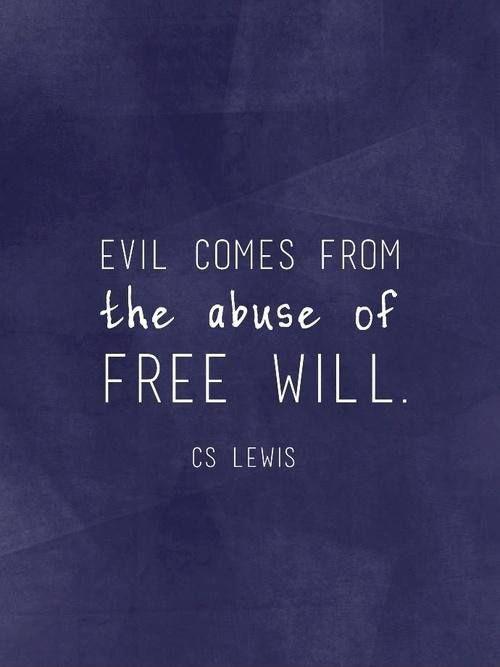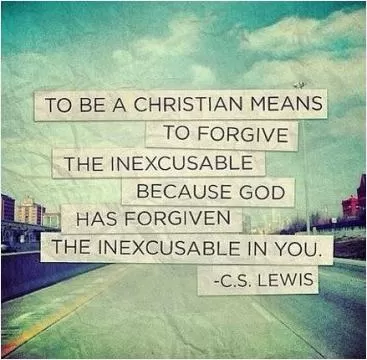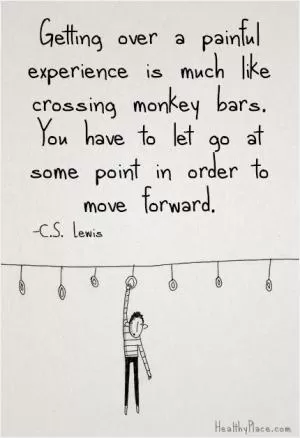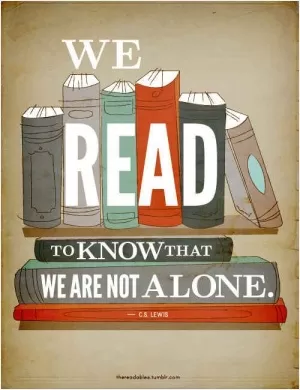Evil comes from the abuse of free will

Evil comes from the abuse of free will
C.S. Lewis, the renowned author and theologian, famously stated that "evil comes from the abuse of free will." This profound statement encapsulates a fundamental aspect of human nature and the choices we make in our lives. Lewis believed that every individual possesses the gift of free will, the ability to make choices and decisions independent of external influences. However, he also recognized that this freedom can be misused and lead to the perpetration of evil.In the context of C.S. Lewis's words, the abuse of free will refers to the conscious decision to act in a manner that goes against moral principles and values. It is the deliberate choice to harm others, to engage in selfish and destructive behavior, and to disregard the well-being of oneself and others. Evil, according to Lewis, is not an external force or entity but rather a consequence of human actions that stem from the misuse of free will.
One of the key themes in Lewis's works, particularly in his famous book "The Screwtape Letters," is the concept of temptation and the struggle between good and evil. In this book, Lewis explores the ways in which individuals are lured into sin and moral decay by succumbing to their base desires and impulses. The devil, in the form of Screwtape, manipulates and deceives humans into making choices that lead them away from God and towards evil.
Moreover, Lewis believed that the abuse of free will is a universal phenomenon that affects all individuals, regardless of their background or beliefs. He argued that human beings are inherently flawed and prone to making mistakes, but they also have the capacity for redemption and moral growth. By acknowledging the existence of evil and taking responsibility for their actions, individuals can strive to overcome their weaknesses and make choices that align with their values and principles.












 Friendship Quotes
Friendship Quotes Love Quotes
Love Quotes Life Quotes
Life Quotes Funny Quotes
Funny Quotes Motivational Quotes
Motivational Quotes Inspirational Quotes
Inspirational Quotes